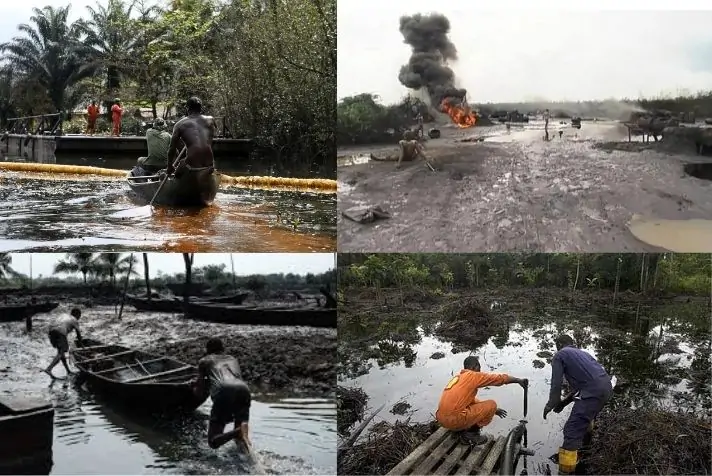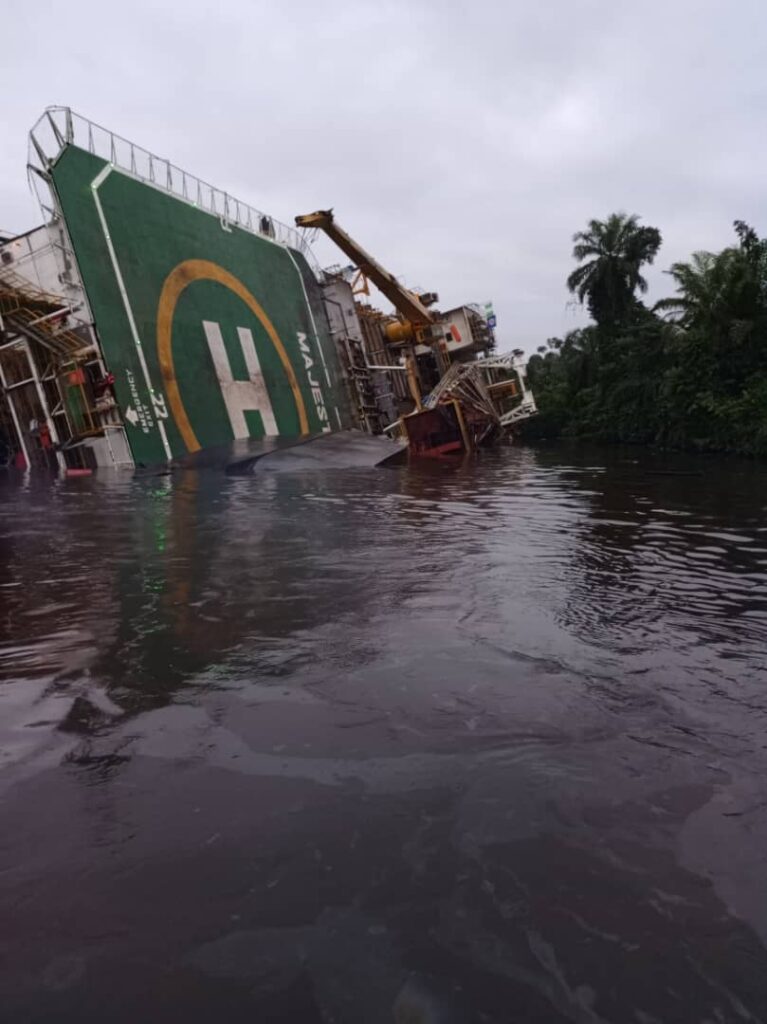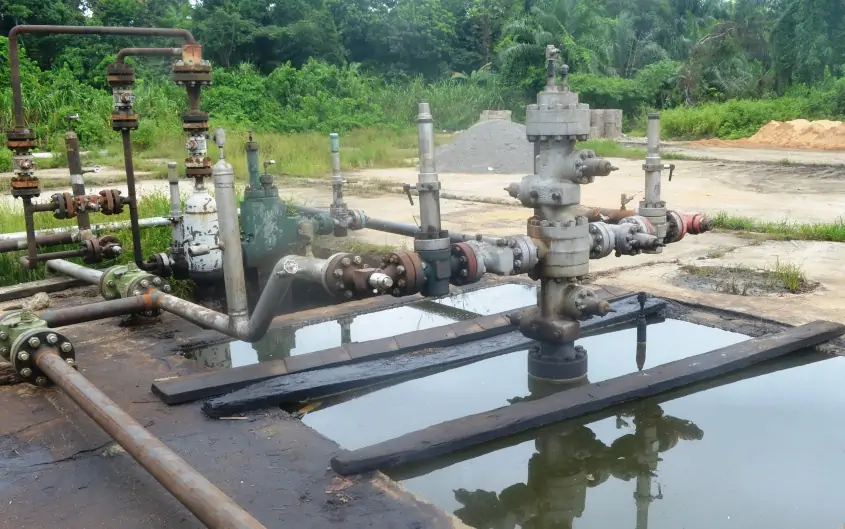By Jude Dike
In the heart of Nigeria, where the air smells of oil and the soil holds an abundance of wealth, the Niger Delta region stands as a stark paradox: an area blessed with natural resources yet plagued by poverty, environmental degradation, and political mismanagement. With its rich history of oil production, diverse ecosystems, and vibrant communities, the Niger Delta should be a symbol of prosperity. Instead, it remains mired in economic underdevelopment, suffering from the plunder of multinational corporations, illegal activities, and a chronic lack of effective governance.
A Wealth of Resources, A Land of Suffering
The Niger Delta, often referred to as the “oil-rich” region of Nigeria, has long been the economic backbone of the nation. It holds the world’s 10th largest oil reserves and accounts for over 90% of Nigeria’s foreign exchange earnings. The vast oil fields beneath the Niger Delta’s swamps, forests, and river systems have attracted global giants like Shell, Chevron, and ExxonMobil. But instead of witnessing the wealth trickling down into the hands of the local people, the region is defined by its crippling poverty.
Join our WhatsApp ChannelDespite the billions generated from the sale of oil and gas, the communities that live in the Niger Delta remain among the poorest in the country. Infrastructure is woefully inadequate, unemployment is rampant, and access to basic services like healthcare and education is limited at best. The rivers, once teeming with fish, are now polluted by decades of oil spills, gas flaring, and environmental degradation. The land, fertile and rich in biodiversity, has become barren due to the continuous destruction of the ecosystem by reckless industrial practices.
Plunder by Multinational Corporations
The multinational oil and gas companies operating in the Niger Delta have long been accused of exploiting the region’s resources with little regard for the welfare of the local population. While they have reaped vast profits from Nigeria’s oil wealth, the communities that live in the delta have seen little benefit. In fact, the corporations’ operations have often caused irreparable harm to the environment, with oil spills, gas flaring, and deforestation devastating the region.
The consistent failure of these companies to adhere to environmental standards and compensate affected communities has led to widespread resentment. Oil spills have contaminated the water sources of thousands of people, and the air is thick with the smoke from gas flares that burn day and night. This reckless plunder is not just a byproduct of negligence, but a deliberate strategy to maximize profits at the expense of the environment and the people who call this land home.
READ ALSO: EDITORIAL: Crude Oil Soots Port Harcourt With Death Threats
The Rise of Militancy and Illicit Activities
The situation in the Niger Delta took a dangerous turn in the early 2000s when militant groups emerged, driven by frustration and a sense of abandonment. Armed groups like the Movement for the Emancipation of the Niger Delta (MEND) launched attacks on oil infrastructure, kidnapping oil workers, and blowing up pipelines. Their goal was not only to demand a larger share of the oil wealth but also to draw attention to the environmental devastation and social injustices that had plagued the region for decades.

READ ALSO: Niger Delta Is A Privatised And Sacrificed Zone
In the years that followed, some of these militant groups evolved into so-called “pipeline security operators.” Instead of attacking oil facilities, they now protect them in exchange for payments from the oil companies. This development created a new kind of economic power structure in the region, where the very forces once bent on sabotaging the oil industry are now directly involved in its protection. While this arrangement has arguably provided a semblance of peace, it has also led to an increase in illegal activities, including oil bunkering and the operation of illegal refineries.
Illegal refineries, often set up by local groups, process stolen crude oil into petroleum products for sale on the black market. The proliferation of these illicit activities has further damaged the environment, as unregulated refining methods release toxic chemicals into the air and water. What began as a desperate means of survival for many Niger Delta youths has become an entrenched, dangerous industry that sustains a vicious cycle of exploitation and environmental harm.
READ ALSO: Nigeria Destroying Illegal Refineries, Yet No Legal Refinery
The Failed Interventions: OMPADEC, NDDC, and the 13% Derivation Fund
The Nigerian government has made numerous attempts to address the issues of poverty, underdevelopment, and environmental degradation in the Niger Delta. One of the earliest attempts was the establishment of the Oil Minerals Producing Areas Development Commission (OMPADEC) in the early 1990s, followed by the Niger Delta Development Commission (NDDC) in 2000. Both bodies were created to channel resources into infrastructure development, environmental cleanup, and poverty alleviation for the region’s people.
However, these agencies have been marred by inefficiency, corruption, and mismanagement. Billions of naira allocated to the NDDC and OMPADEC for developmental projects have vanished without a trace, and most initiatives have yielded little tangible benefit for local communities. The lack of accountability and transparency in these institutions has fueled public distrust, as locals watch government funds being diverted into the pockets of politicians and bureaucrats instead of into the much-needed development of their communities.

Similarly, the 13% derivation fund, which is intended to provide a share of oil revenues directly to the states in the Niger Delta, has been a source of contention. Although it is meant to support local governments in their efforts to alleviate poverty and develop infrastructure, the fund has been mismanaged by state governors, who often divert the resources into personal or political interests rather than addressing the needs of their people. The resulting neglect and inefficiency have exacerbated the region’s poverty and underdevelopment.
The Missed Opportunity of the Goodluck Jonathan Presidency
When Goodluck Jonathan, a son of the Niger Delta, ascended to the presidency in 2010, there was a glimmer of hope that the region might finally see the benefits of its oil wealth. Jonathan, having experienced the hardships of the Niger Delta firsthand, was expected to prioritize the development of his home region. However, his presidency, while offering some improvements in peace and security, ultimately failed to address the region’s deep-rooted structural issues. Despite his administration’s focus on the Niger Delta, corruption, mismanagement, and a lack of effective governance hampered any meaningful progress.
READ ALSO: How NNPC, Oil Marketers Spend Over N5.5trn On Fuel Imports In 4 Months
Under Jonathan’s tenure, the region’s environmental problems worsened, militant groups remained active, and local communities continued to suffer from neglect. The 13% derivation fund allocation remained poorly managed, and there were few significant investments in infrastructure or poverty alleviation. The opportunity to transform the Niger Delta into a model of sustainable development was lost, and the region’s people were left to continue suffering the consequences of decades of exploitation.
A Ray of Hope: The Petroleum Industry Act (PIA)
In 2021, Nigeria passed the Petroleum Industry Act (PIA), which is seen by many as a potential game-changer for the Niger Delta. The PIA aims to reform the oil and gas sector by improving transparency, ensuring better revenue management, and creating a more sustainable and inclusive industry. One of its key provisions is the establishment of a host community development fund, which is intended to directly benefit the communities that have borne the brunt of the environmental destruction caused by oil extraction.
For the first time, there is a clear legal framework that mandates oil companies to invest in the development of host communities and mitigate the environmental impact of their activities. The PIA also seeks to address the issue of gas flaring, a long-standing problem in the Niger Delta, by imposing stricter regulations on oil companies to reduce flaring and provide cleaner energy alternatives.

While the PIA holds promise, its success will ultimately depend on the political will to implement the reforms and ensure that the benefits reach the people who need them most. The Niger Delta’s road to recovery will be long, but the PIA could provide the foundation for a new era of development, if the government, oil companies, and local communities work together to make it a reality.
Conclusion: A Call for Action
The Niger Delta’s story is one of contradictions: a region that sits atop unimaginable wealth yet suffers from crippling poverty; a land rich in natural resources but drained by exploitation; a people whose voices have been drowned out by the noise of multinational corporations and corrupt governments. However, the Niger Delta’s plight is not hopeless. With the right political will, a genuine commitment to sustainable development, and an effective implementation of the Petroleum Industry Act, the region can begin to heal.
But for this to happen, the people of the Niger Delta must not only demand accountability from their leaders but also ensure that their voices are heard in every decision that affects their future. The time for change is now — and the Niger Delta deserves nothing less than the prosperity it was promised, but has never truly seen.
Dr. Jude Dike is a college professor, energy economist and host of a popular weekly podcast in Calgary, Canada.

















